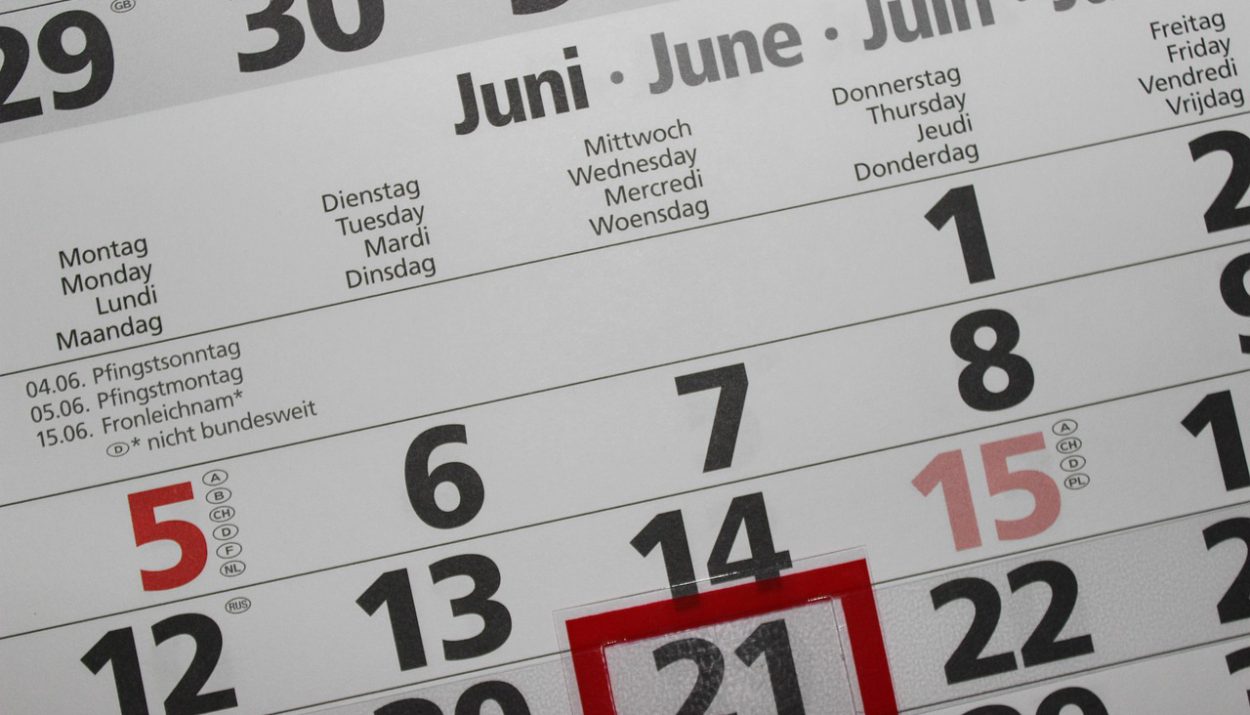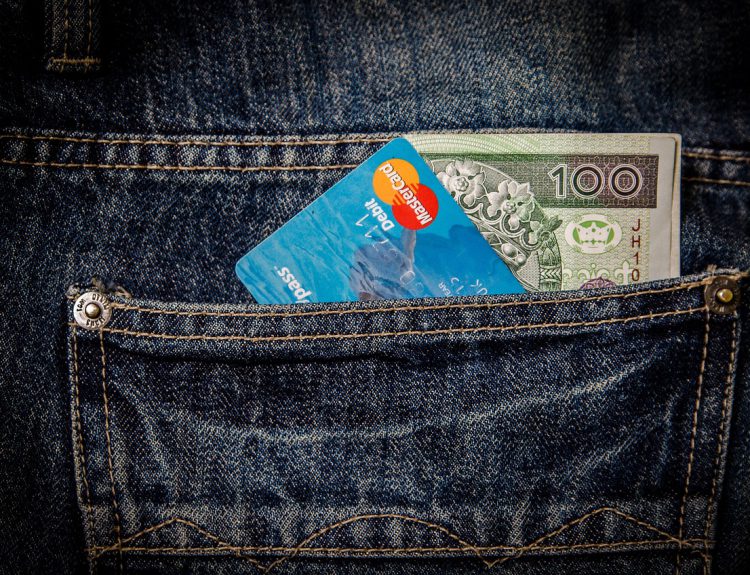When it comes to personal finance, budgeting is one of the most talked-about topics. It is also an area that never fails to spark a discussion on online portals, be it Reddit or LinkedIn. Whether you are looking to pay off the debt, achieve personal goals, invest, or simply want to effectively utilize the paycheck, a well-crafted monthly budget can be a game-changer. Creating an effective monthly budget is by no means a walk in the park; even harder is sticking to your financial plans.
Core Budgeting Approach
Separate accounts for expenses and savings
Expenses and savings eat up a significant portion of any salaried employee’s paycheck. The whole idea of personal finance tips revolves around reducing costs and increasing savings. Therefore, effectively managing the expenses and savings is a core budgeting approach. A simple trick for doing so would be to separate accounts for expenses and savings. It will make your finances easily traceable as well as keep both costs and savings on track.
Track every transaction
Most people often fail to manage their personal finances due to a failure to track all expenses. When you pay for the product or services, your duty does not end with the completion of payment. Instead, you need to keep the records of all your expenses, regardless of their derived value proposition. Every transaction you make, be it cash, card, or credit, influences the health of your personal finances.
Account for annual and irregular expenses
A common pitfall when it comes to budgeting is forgetting about irregular costs. While you do not pay for insurance, holidays, car maintenance, etc., every month, sporadic expenses can wreck the budget when they show up. Hence, while preparing your monthly budget, set aside a portion for the irregular expenses. The other reason people feel their “budgets do not work” is due to the undermining of the annual expenses. Single annual payments often gobble up a large amount of your paycheck. Failure to account for annual and irregular expenses renders your monthly budget ineffective.
Popular Budgeting Systems on Reddit
50/30/20 Rule
The oldest trick in the book, the 50/30/20 rule, is widely used for setting up the monthly budget. Redditors have frequently voiced their opinions about the simplicity and effectiveness of the rule. The method splits your income after taxes into three major verticals, viz, necessities, wants, and savings. 50% of your cash in hand must go towards fulfilling the necessities, 30% towards wants, and the remaining is pooled into a savings account. However, one must smartly make necessary adjustments to the rule so that it addresses the requirements of your lifestyle. Further, Redditors have advised setting up a monthly budget separately for each of the three verticals, as it will help you in tracking and managing the costs
Envelope System
The envelope system is a budgeting trick where you set aside an amount for specific categories by placing it in an envelope. While the traditional method relied on physical envelopes, the digital envelope system uses spreadsheets and apps. The trick is known in TikTok as the Cash Stuffing technique. The rule is to limit the expenses to the amount placed in the envelope. While the physical envelope system discarded the fixed expenses, the modern envelope techniques cover all the areas with the help of spreadsheets and apps.
Zero-Based Budgeting
Zero-Based Budgeting is a budgeting technique that requires justifying all expenses for each new budgeting period. In simpler words, you assign a purpose for each dollar of your take-home pay. At the end of your monthly budget planning, you should be left with no spare money, as you have already assigned a purpose to each dollar. Zero-based budgeting helps you proactively decide your priorities in advance. Redditors who follow this method often report less guilt around spending because they know it’s already accounted for.
Mental Budgeting
If you do not want to engage in the hassle of spreadsheets, maths, and calculations, mental budgeting is suitable for you. The concept is to keep a rough idea of your income, expenses, and their categories in your head. The Mental Budgeting trick emphasizes more on the behavioral side of budgeting than the mathematical side.
| Method | Best For | Difficulty | Flexibility |
| 50/30/20 Rule | Beginners | Easy | Medium |
| Envelope System | Impulsive buyers | Medium | Low |
| Zero-Based | Detail-oriented planners | Harder | High |
| Mental Budgeting | Minimalists, casual users | Easy | High |
Recommended Tools & Apps
YNAB (You Need A Budget
Based on the envelope system and zero-based budgeting, You Need A Budget (YNAB is a budgeting tool that helps create a friendly and flexible financial plan. Rated number 1 in its category, YNAB’s UI model works around making personal finance as simple as it gets. The app encourages you to give every dollar a job, automate syncing, and track your goals. Likewise, YNAB is not limited to providing services; it offers educational content for its users as well via workshops and guides.
Google Sheets / Excel
Suitable for those who prefer not to use subscription-based apps, Google Sheets and Excel can be handy budgeting tools if used to their fullest. The most significant advantage these tools offer is their customizability. When you actually get hold of a few formulas, you can create a system that exactly fits your income. Beginners can take the help of readymade templates to get started. Google Sheets and Excel require a bit more manual effort than the subscription-based models.
Other apps: Copilot, Centsible, Monarch, Rocket Money
There are various money management and budgeting apps that you can use for help. Copilot is a well-known application among young professionals, thanks to its unique features, including transaction tracking, expense categorization, and insights for saving. For net-worth tracking along with personal finance management, Monarch lets you explore the bigger picture of finance. Likewise, Centsible and Rocket Money help you make smarter money management decisions by tracking your subscriptions and visualizing your spending habits.
Key Tips to Stick to Your Budget
Automate transfers
One of the foremost budgeting tips in the modern age would be to automate financial transactions. Automation reduces decision fatigue and ensures your priorities are met consistently. Various personal finance tools and applications help you automate transfers, payments, and manage investment accounts promptly.
Adjust budget for irregular expenses
Irregular expenses can be cumbersome if not handled smartly. Such sporadic expenses tend to flip the monthly budget upside down when not accounted for during planning. As such, set aside a portion of your cash on hand and in the bank to cover irregular expenses.
Use envelopes for overspending categories
Envelope budgeting technique is effective when used in overspending categories. If you stick to the plan, the envelope technique bars you from overspending in any categories. Consider implementing the envelope budgeting technique if you have a history of overspending in certain categories.
Keep system simple & sustainable
A monthly budget works best when it aligns with your reality and lifestyle. Your plan should be sustainable and straightforward enough throughout. Furthermore, your monthly budget should help you achieve your financial and personal goals without creating a financial burden.
Review and revise monthly/quarterly
Every plan needs timely adjustments to stand the test of time. Analyze the results from your current plan and make necessary changes in the next. Revision helps you strengthen the core of your monthly budget and helps you derive better results.
Conclusion
Preparing a monthly budget is the first and most crucial step towards achieving financial freedom. A smart plan helps you save smartly and spend efficiently. However, sticking to the financial plan, regardless of how brilliant it is on paper, is a whole different thing. Your monthly budget bears fruit only when you follow it consistently. Your monthly budget should be a platform for you to achieve realistic and sustainable lifestyle and financial goals. A well-crafted monthly budget, coupled with consistency, discipline and regular adjustments, is key in unlocking a better financial space.
Join The Finance Gig — a blogging platform where smart money minds share insights, hacks, and strategies to take control of their financial future. Start reading, sharing, and growing today!
Frequently Asked Questions (FAQs) About Monthly Budgeting
1. What is the easiest budgeting method for beginners?
The 50/30/20 rule is often considered the easiest method for beginners since it breaks expenses into simple categories—needs, wants, and savings.
2. How do I handle irregular expenses in my budget?
Set aside a small portion of your income each month in a separate fund specifically for annual or irregular expenses like insurance, holidays, or car maintenance.
3. Which budgeting apps are most effective?
Popular options include YNAB (You Need A Budget), Copilot, Monarch, Rocket Money, and even free tools like Google Sheets or Excel for a customizable approach.
4. How can I stick to my budget without feeling restricted?
Choose a budgeting system that fits your lifestyle and allows flexibility. For example, envelope budgeting helps with overspending categories, while zero-based budgeting keeps every dollar purposeful.
5. How often should I review my budget?
At least monthly, but ideally quarterly. Regular reviews help you adjust for changes in income, expenses, or goals, keeping your budget sustainable.
6. What if I overspend in a category?
Don’t abandon your budget altogether. Reallocate from other categories or adjust for next month. Consistency and small corrections are more important than perfection.
7. Can I budget without apps or spreadsheets?
Yes, you can use mental budgeting, which relies more on awareness and behavior than math. However, apps and spreadsheets usually provide better tracking and accountability.




